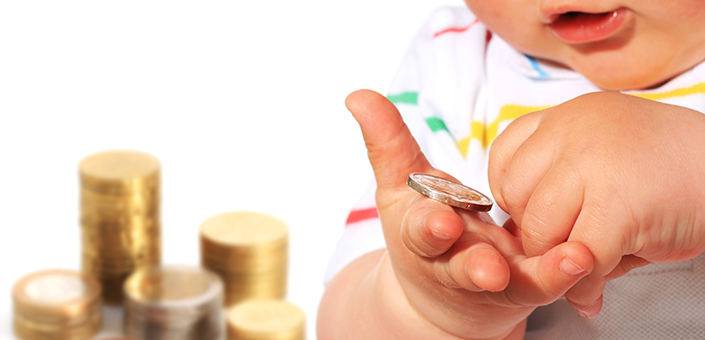All parents will agree that having children puts pressure on the family finances, and any little help you can get is a bonus.
Child Benefit can give a welcome boost to your family income for those little extras that always seem to pop up. A family with two children could claim nearly £2,252 a year in Child Benefit so it's definitely worth claiming and seeing what you are entitled to. Understanding how to claim and what you’re entitled to can be a minefield. Below are four common questions about Child Benefit, and the answers.
1. Who is Child Benefit for and how much can I get?
Child Benefit is for anyone who is responsible for a child. There is slightly more to it if you and your partner are high earners, but at its essence it is simply what it says on the tin - a benefit for people who have children.
You can claim for each child under 16, or under 20 years if they're in approved non-advanced full-time education, like sixth-form or college. Once they go on to further education, like university, the benefit will stop.
You do not have to be their parent (but you must be their approved carer), and it doesn't matter if you're working or you have savings.
If your child starts paid work for 24 hours or more a week and is no longer in approved education or training, your Child Benefit will stop. The same applies if your child starts an apprenticeship or starts receiving certain benefits in their own right.
You receive £26.05 per week for your first child and £17.25 a week for any further children. That's more than £1,350 a year if you have one child and an extra £897 for subsequent children. This amount is for 2025/26 tax year.
Payments are tax-free as long as neither parent or carer earns more than £60,000 a year.
If you or your partner earn over £60,000 a year, you will have to pay back some of your Child Benefit back, and if either of you earn over £60,000 you will have to repay all of your Child Benefit as extra Income Tax.
This also applies if you're a single parent family - so, if you're single, responsible for a child, and earn more than £60,000 a year for example, you will have to repay all of your Child Benefit.
This is not to say it's not worth claiming anyway. It could be valuable even if you do end up paying it back in extra tax.
Did you know that claiming Child Benefit will help you protect your State Pension? This is because, if you're off work looking after your child, you will not be paying National Insurance contributions. However, claiming Child Benefit will ensure you get these credits towards your State Pension.
So, even if you don't think you'll be entitled to anything because either you or your partner earns over the £60,000 tax-free limit, it's still worth claiming so you don't miss out on those precious National Insurance credits.
2. How do I claim Child Benefit?
You need to fill out a CH2 claim form, available from Gov.uk, and send it to the Child Benefit Office along with your child's original birth certificate (which you'll get back.
Don't worry if you don't have the certificate yet, you can send in the form anyway and forward the certificate as soon as you have it.

3. When do I have to claim by?
Child Benefit entitlements can only be back-dated for three months before the date the application is received. So make sure you get your claim in before your baby is three months old. However there's not a specific time your claim has to be in by. But don't forget it for too long. There's no point not getting money you're entitled to!
4. How much do I have to pay back if I or my partner earn more than £50,000 a year?
If either of you earn between £50,000 and £60,000, whichever one of you has the higher income will be required to pay back 1% of your family's Child Benefit for every extra £100 you earn over this £50,000 threshold each year.
If either of you earns over £60,000, whichever one of you has the higher income, will have to pay back the full amount in the form of Income Tax.
If you decide to carry on getting Child Benefit you will need to fill in a Self-Assessment tax return so that HM Revenue & Customs (HMRC) can calculate the amount of extra Income Tax you will have to pay.
You can stop your Child Benefit at any point. You may choose to do this if you are a high earner to avoid the hassle of paying additional tax and completing a tax return. Before you do this, you need to weigh up the benefits of continuing to receive Child Benefit, as mentioned. You will need to let HMRC and Gov.uk know about your decision - the forms are on their websites.
